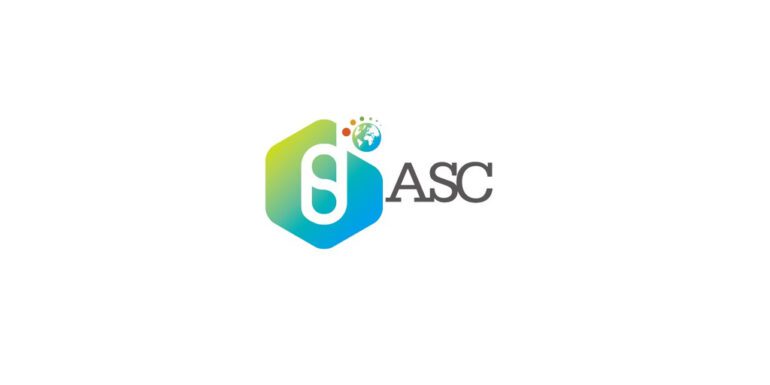TL;DR:
- Twenty-five university teams worldwide have advanced to the finals of the ASC Student Supercomputer Challenge (ASC24).
- Notable institutions such as Huazhong University of Science and Technology, Peking University, and National Tsing Hua University are among the finalists.
- The ASC Organizing Committee and Shanghai University have accommodated a record-high 25 teams for the ASC24 Finals.
- Teams will compete for prestigious awards including Champion, Silver Prize, and Highest LINPACK from April 9 to 13, 2024.
- Huazhong University of Science and Technology’s team demonstrated exceptional performance in supercomputing tasks, securing the top rank in the preliminary round.
- Challenges included Large Language Model (LLM) Inference Optimization and Seepage Numerical Simulation, showcasing innovative approaches and optimization techniques.
- Expectations are high for a competitive and innovative showdown at the ASC24 Finals.
Main AI News:
The latest update on the 2024 ASC Student Supercomputer Challenge (ASC24) reveals the exciting preliminary results. With over 300 universities globally vying for recognition, twenty-five exceptional teams have emerged victorious, securing their spots in the upcoming finals. Notable contenders include esteemed institutions such as Huazhong University of Science and Technology, Peking University, the Chinese University of Hong Kong, National Tsing Hua University, Friedrich-Alexander-University Erlangen-Nuremberg, and the National University of Cordoba. These top-tier teams are poised to compete for prestigious titles, including the Champion, Silver Prize, Group Competition Award, e Prize, and Highest LINPACK, during the finals scheduled to be held from April 9 to 13, 2024, hosted by Shanghai University.
Responding to the formidable challenge posed by a plethora of outstanding teams, the ASC Organizing Committee, along with Shanghai University, has made the unprecedented decision to accommodate 25 teams for the ASC24 Finals. This historic move sets a new benchmark for the highest number of teams qualifying for onsite finals since the inception of the ASC competition in 2012.
Among the finalists, Huazhong University of Science and Technology’s team has demonstrated a profound understanding of supercomputing knowledge and technologies. Employing meticulous performance bottleneck analysis and innovative optimization techniques, they have delivered exceptional results. Their exemplary performance across all tasks has secured them the top rank in the preliminary round.
The ASC24 finals lineup features traditional powerhouses such as Peking University and the Chinese University of Hong Kong, alongside emerging contenders like the National University of Cordoba, Macau University of Science and Technology, and Southwest Petroleum University, making their debut appearances this year. Excitement abounds as these teams gear up to showcase their prowess in the ASC arena.
The ASC24 preliminaries comprised two computational tasks: Large Language Model (LLM) Inference Optimization and Seepage Numerical Simulation. Participating teams showcased remarkable capabilities in exploring and innovating supercomputing application analysis, performance optimization, and parallel strategy design.
In the Large Language Model (LLM) Inference Optimization Challenge, teams were tasked with building and refining inference engines using the widely adopted open-source LLM, LLaMA2. The objective was to achieve high-throughput inference on sample datasets provided by the organizing committee. Success hinged on demonstrating a deep understanding of common parallel methods applicable to LLMs and implementing various techniques to enhance the inference process.
Huazhong University of Science and Technology’s team developed an LLM inference engine incorporating tensor parallelism, KVCache, and PagedAttention. They also deployed asynchronous pipelining to address model parameter loading issues and implemented a distributed memory manager for load balancing, culminating in the highest score. Meanwhile, Friedrich-Alexander-University Erlangen-Nuremberg’s team leveraged a customized TensorRT-LLM engine and determined optimal performance with a batch size of 8, utilizing tensor parallelism and batched generation.
The Seepage Simulation Task in ASC24 explored the intricate flow patterns of multiphase fluids within porous media using OpenCAEPoro. Teams were tasked with simulating multiphase fluid seepage scenarios related to petroleum extraction. Success required adept optimization of large-scale parallel computing processes, focusing on improving computing performance and parallel efficiency.
Qinghai University’s team employed optimization methods like function inlining and loop expansion, addressing computational bottleneck matrix assembly to achieve highly effective optimization. Meanwhile, National Tsing Hua University’s team conducted a comprehensive analysis, leveraging optimized compiler flags and computing libraries to maximize performance in CPU parallelization.
Conclusion:
The participation of twenty-five top university teams in the ASC24 Finals highlights the growing importance and competitiveness of the supercomputing market. Institutions are investing heavily in research and development, showcasing advancements in technology and pushing the boundaries of computational capabilities. This influx of talent and innovation not only fuels progress within the industry but also underscores the significant role of supercomputing in driving advancements across various sectors.

